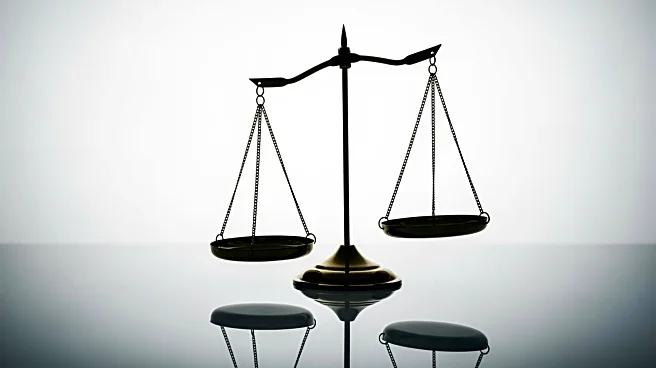What's Happening?
Charlie Javice, convicted of defrauding JPMorgan Chase & Co., has accused the bank of hypocrisy for objecting to paying her legal bills. JPMorgan has requested a Delaware court to cease its obligation
to cover legal costs for Javice and her co-defendant, Olivier Amar, citing the $115 million in defense costs as excessive. Javice's legal team argues that JPMorgan's own hiring of over 50 lawyers contradicts its stance. The bank's delays in evidence disclosure are claimed to have contributed to the high defense costs. Javice was sentenced to seven years in prison, while Amar received five years and eight months. The legal dispute continues as Javice seeks to retain her preferred appellate counsel.
Why It's Important?
The legal battle between Charlie Javice and JPMorgan highlights the complexities of corporate legal obligations and the financial implications of fraud cases. The outcome could set precedents for how legal costs are managed in corporate acquisitions and fraud cases. JPMorgan's stance reflects concerns over excessive legal fees, which could impact future corporate legal strategies. Javice's case also underscores the challenges faced by startups in maintaining transparency and integrity during acquisitions. The broader implications may affect investor confidence and corporate governance practices.
What's Next?
The Delaware court's decision on JPMorgan's obligation to cover Javice's legal fees will be pivotal. If the court sides with JPMorgan, it could influence how legal costs are handled in similar cases. Javice's appeal process will continue, potentially affecting her sentence and financial liabilities. The case may prompt discussions on legal fee management and corporate accountability. Stakeholders, including legal experts and corporate leaders, will be watching closely for any shifts in legal precedents.
Beyond the Headlines
The ethical dimensions of corporate acquisitions and the responsibilities of legal teams are brought to the forefront by this case. It raises questions about the balance between legal defense rights and corporate financial responsibilities. The case may lead to increased scrutiny of legal practices in mergers and acquisitions, potentially influencing regulatory policies.









